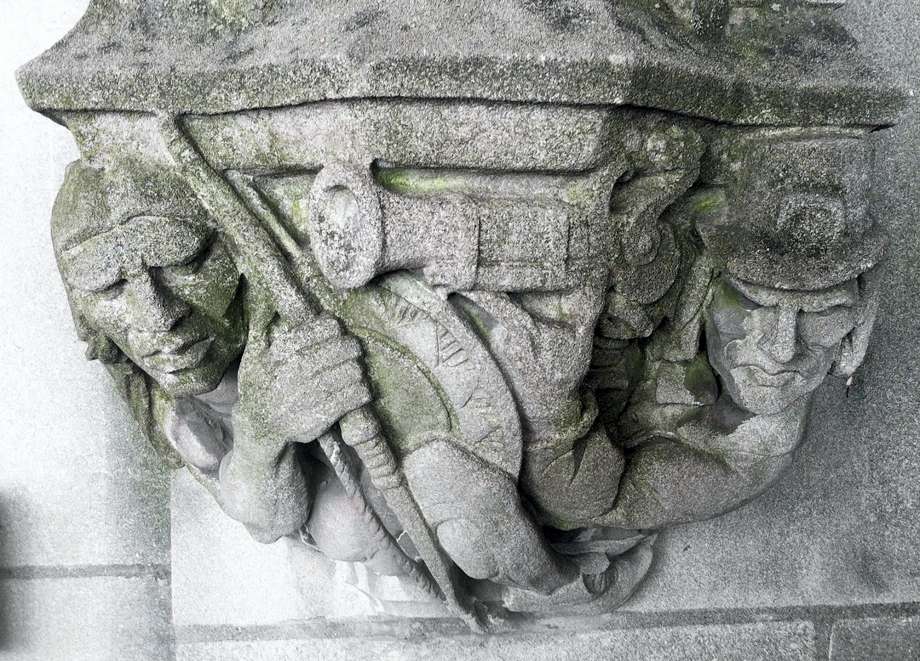HUMS 318, War and its Literature

Course Description
War is the first of “The Four Horsemen of the Apocalypse.” A pre-Socratic fragment attributed to Heraclitus declares war to be “the father of all things,” General William Tecumseh Sherman, who loved it, said, “War is Hell.” All have a claim to be correct.
What is clear is that war has supplied humanity’s symbols, similes, and language references from college football’s “Fighting Irish” to “The War on Poverty.” War also figures in the first tier of literature and all other liberal arts. An entire publishing genre has existed to advise corporate CEOs on how to follow the strategies of Sun Tzu’s The Art of War.
For the Humanities, the arena of knowledge which uniquely takes uncertainty to be its province, war is an innate topic of study. As General, later President, Eisenhower observed, in preparing for battle, “All plans are useless, but planning is essential” – which could be the motto for this seminar. The syllabus, attached, reveals that to a significant extent every major era in intellectual and political history can only fully be understood by investigating the war or wars that lie at its core – for better or worse.
The seminar will address ancient Athens and Rome in “The Wrath of Achilles” and the marriages of Aeneas; decision-timing as in “Look Before You Leap” but also “He Who Hesitates is Lost,” as Caesar recognized. Religion’s power is revealed in the Thirty Years’ War; leadership from Louis XIV to Napoleon and his Grand Armée. The exceptional American wartime experiences from Washington’s Crossing (an epic of the Revolution), to Whitman and Lincoln’s poetry, to Eisenhower at the Elbe and Creighton Abrams in Vietnam. Horrors and heroes from the Little Big Horn to the Lafayette Escadrille. And the literatures of such as Defoe, Kipling, Faulkner, and Hemingway (“In the fall the war was always there, but we did not go to it anymore”). Above all, “Mourning and Remembrance” as depicted in the monuments and architectures of Tiananmen, Yasukuni, Les Invalides, Trafalgar Square, the Vietnam Veterans Memorial and Woolsey Hall.
Led by:

Professor Charles Hill is a diplomat in residence and lecturer in International Studies at Yale University. He is a career minister in the U.S. Foreign Service, serving in a variety of roles such as Deputy Assistant Secretary for the Middle East at the State Department, Chief of Staff of the same, and executive aid to former U.S. Secretary of State George P. Shultz.
He served as special consultant on policy to the secretary-general of the United Nations from 1992 to 1996. Professor Hill has collaborated with former U.N. Secretary General Boutros Boutros-Ghali on Egypt’s Road to Jerusalem, a memoir of the Middle East peace negotiations, and Unvanquished, about U.S. relations with the U.N. in the post–cold war period. He is also the editor of the three-volume Papers of U.N. Secretary-General Boutros-Ghali, published by Yale University Press.
His book “Grand Strategies: Literature, Statecraft and World Order” is published by Yale University Press. His “Trial of a Thousand Years: Islamism and World Order” is published by the Hoover Press, Stanford University.
Testimonials:
This course has not been previously offered. Testimonials are taken from student course evaluations of other courses by Professor Hill.
- “This course drew strength from the breadth and depth of the material covered and Professor Hills fascinating commentary. His knowledge, analysis, and personal experiences made for rich discussions, which were also peppered with insight and advice about the real world. ” - Oratory in Statecraft, Spring 2018
- “The biggest strength is Professor Hill, who is an incredible lecturer and devoted instructor. I’ve never had an instructor with such a breadth of knowledge or experience.” - Intellectual Circles, Fall 2017
- “Professor Hill has a wealth of knowledge and his insights are enough to warrant a student’s attention to the course, but beyond that the level of understanding one gains of history, the shape that begins to form in one’s mind with each successive text, is an amazing experience to have.” - Intellectual Circles, Fall 2016